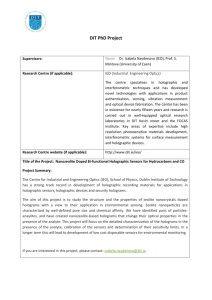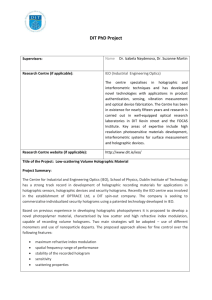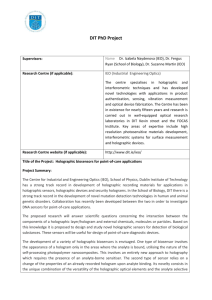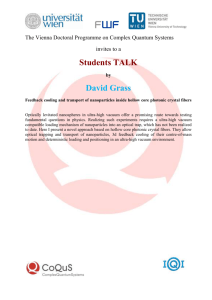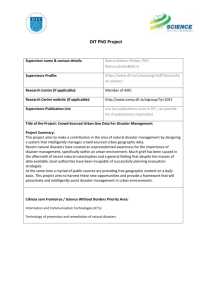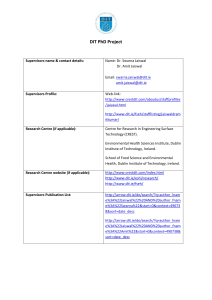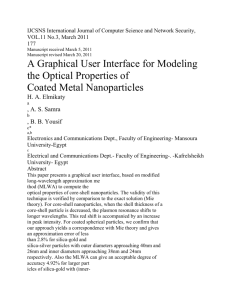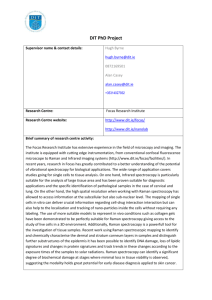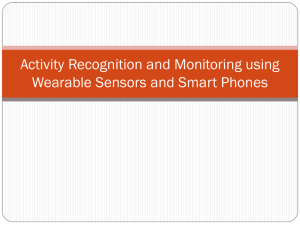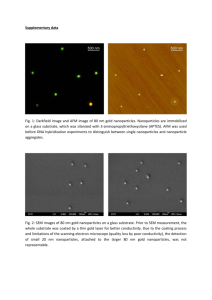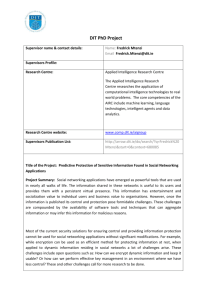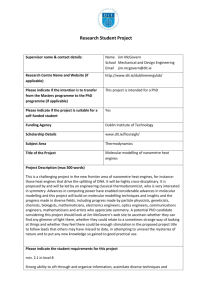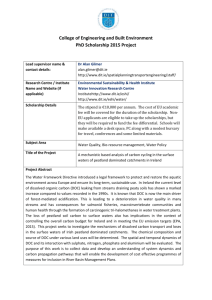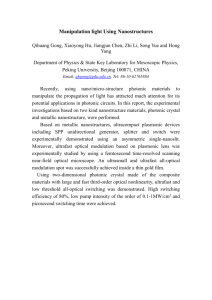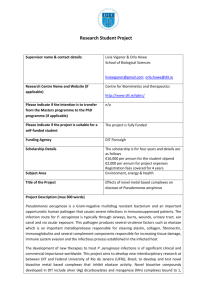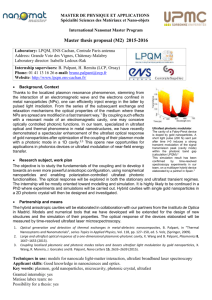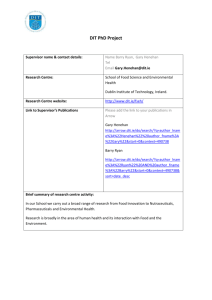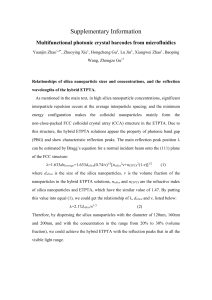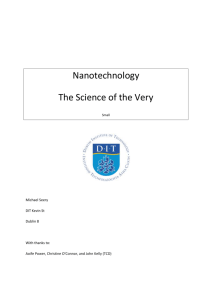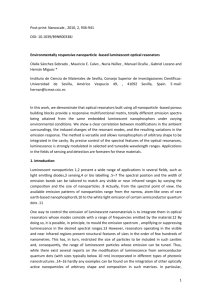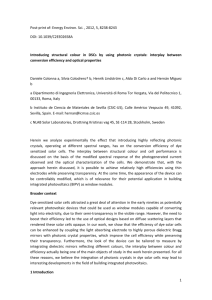Nanozeolite-based photonic structures for application in
advertisement
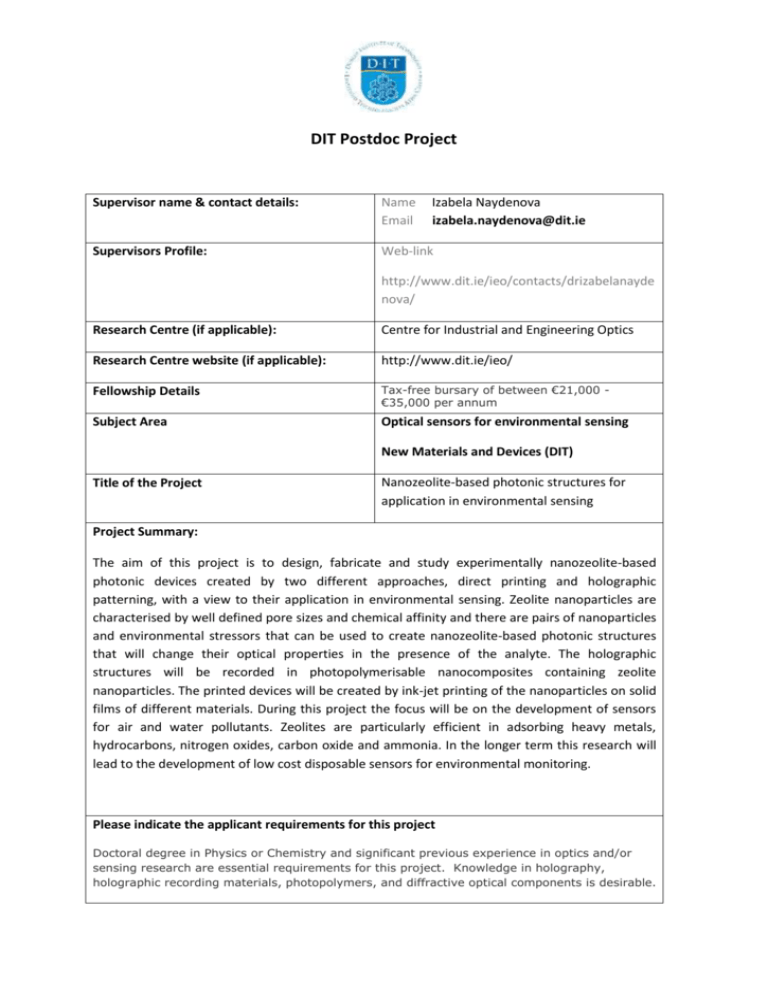
DIT Postdoc Project Supervisor name & contact details: Name Email Izabela Naydenova izabela.naydenova@dit.ie Supervisors Profile: Web-link http://www.dit.ie/ieo/contacts/drizabelanayde nova/ Research Centre (if applicable): Centre for Industrial and Engineering Optics Research Centre website (if applicable): http://www.dit.ie/ieo/ Fellowship Details Tax-free bursary of between €21,000 €35,000 per annum Subject Area Optical sensors for environmental sensing New Materials and Devices (DIT) Title of the Project Nanozeolite-based photonic structures for application in environmental sensing Project Summary: The aim of this project is to design, fabricate and study experimentally nanozeolite-based photonic devices created by two different approaches, direct printing and holographic patterning, with a view to their application in environmental sensing. Zeolite nanoparticles are characterised by well defined pore sizes and chemical affinity and there are pairs of nanoparticles and environmental stressors that can be used to create nanozeolite-based photonic structures that will change their optical properties in the presence of the analyte. The holographic structures will be recorded in photopolymerisable nanocomposites containing zeolite nanoparticles. The printed devices will be created by ink-jet printing of the nanoparticles on solid films of different materials. During this project the focus will be on the development of sensors for air and water pollutants. Zeolites are particularly efficient in adsorbing heavy metals, hydrocarbons, nitrogen oxides, carbon oxide and ammonia. In the longer term this research will lead to the development of low cost disposable sensors for environmental monitoring. Please indicate the applicant requirements for this project Doctoral degree in Physics or Chemistry and significant previous experience in optics and/or sensing research are essential requirements for this project. Knowledge in holography, holographic recording materials, photopolymers, and diffractive optical components is desirable. Doctoral degree holders who are leading authors in their field and have taken part in important innovations or new developments in that field are strongly encouraged to apply to the scheme. The candidates are expected to demonstrate effective communication and knowledge transfer skills with the ability to present complex information effectively to a range of audiences. Ability to work collaboratively and as part of a team to an agreed work plan is expected. Record of having secured independent, competitive research funding is essential. It is desirable that the applicants will have experience in supervision of postgraduate researchers. Deadline to submit applications 30 June 2015
